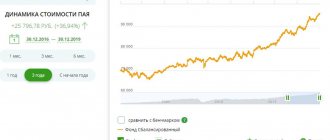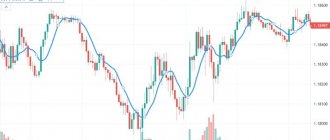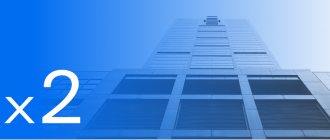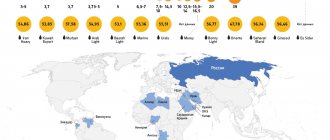The best thing about investment strategies is their flexibility. If you choose one option and it doesn't suit your risk appetite, you can certainly make changes. But be careful: it may be too expensive. A broker's commission is charged for each purchase. More importantly, selling assets may result in the loss of some profits. After all, income from investments is subject to income tax.
In this article we will look at the 7 most popular approaches that suit most investors. By taking a little time to understand the characteristics of each, you can easily determine which one is right for you in the long term without having to bear the cost of changing investment rates.
Select your investment goal
Depending on what you need investments for, choose a strategy and the degree of risk. No matter what the advertising promises, it is impossible to get rich instantly with bonds and stocks. The main point of investing is investing in the future.
The goal can be any, but it meets three main requirements:
• specific; • feasible; • having clear deadlines.
For example: “I want to have 10 million rubles of net income in 2050. To do this, I will put 20 thousand rubles + dividend proceeds into my brokerage account every month.” A good solution: break one big goal into several small ones, which you can start achieving right now.
Currency
Keeping all your savings in rubles is not the best idea, especially in conditions of economic instability. The exchange rate of the national currency depends on many factors: oil prices, the geopolitical situation, the situation on global markets, and it is impossible to predict where it will move tomorrow. But you can protect yourself from the fall of the ruble by including foreign currency assets in your investment portfolio. For example, you can buy currency in a bank or on a stock exchange, open a foreign currency deposit, invest in a foreign currency mutual fund, a structured product or shares of foreign companies. The choice depends on your risk tolerance and financial goals.
Tip: To avoid bank markups, exchange currency through an exchange at the market rate.
This is especially beneficial when large amounts are involved and even a tenth of the quote is important. To access the exchange you only need a brokerage account.
Know how much risk you are willing to take
To do this, just take a small test - determine the statement that suits you most:
1. Minimal risks, but low profitability (up to 20% per annum). 2. Average risks and average profitability (up to 40% per annum). 3. High risks, but high profitability (from 50% per annum).
It is important to think not abstractly, but with concrete numbers in front of you. Let's say you want to invest 100,000 rubles. Are you ready to part with 50,000 rubles to get more income? Always first look at the amount of money you will have to part with if you fail.
List of exchanges
Unfortunately, the list of trading platforms that fall under the definition of “stock exchange” in Russia is small.
There are two full-fledged exchange platforms:
- Moscow Interbank Currency Exchange RTS - MICEX (in English transcription - MOEX - RTS). The exchange has the status of a legal entity - it is PJSC Mosbirzha. This platform now represents a merger of two previously independent exchanges. The merger took place in 2015.
- The second stock exchange in Russia is the St. Petersburg Stock Exchange. It plays a supporting role and mainly trades in foreign securities.
Develop your own strategy
There are a lot of variations, but a beginner needs to know about three main ones:
1. Conservative. Lowest profit, minimum risk. In other words, you need a stable, even minimal income. Approximate composition of your portfolio: 50% OFS (federal loan bonds), 20-30% bonds of the largest Russian corporations, 20-30% shares of stable domestic companies. With this approach, the risk is estimated at 3-5%.
2. Balanced. Average profit, average risk. The portfolio is formed approximately in this way: 20% - OFZ, 10-20% - bonds of first-tier corporations, the rest - shares of reliable Russian companies. The risk of failure will be 20-30%.
3. Aggressive. High profit, high risk. There are no bonds in your portfolio - just stocks. Moreover, the investor pays attention to securities not only of the first, but also of the second and even third tier. The yield will be from 50% per annum. But the risk of losing your investment is at the same level.
“Blue chips”
The conservative blue chip strategy involves selecting the most liquid stocks with a high level of capitalization. This list includes the largest companies whose names are known all over the world, and whose business reliability has been proven over the years. On the Russian stock market, this list includes Sberbank, Gazprom, NLMK, Lukoil, Tatneft, Yandex, MTS, Norilsk Nickel, Polyus Gold, etc.
pros
- Stable profitability even in times of crisis
- High reliability of the company (the risk of default is minimal)
- High liquidity
- The advantage of this strategy is that it is very easy to implement and is suitable even for beginners.
Minuses
- Limited growth.
Determine your tax status
Find out if you are a Russian tax resident. It is very important:
• Profits of a domestic tax resident are subject to 13% tax. And if you are a non-resident investor, you will pay 30% of the income. • If you are a tax resident of the Russian Federation, you can apply for a tax deduction. Non-residents do not have such rights.
Determining your residence is simple: you are on the territory of the Russian Federation for at least 183 days a year. An important point: even if you are a citizen of Russia, pay taxes to the Russian treasury, but live abroad for most of the year, you are no longer considered a domestic tax resident.
Disadvantages of the financial market
Here we see some shortcomings of the financial market.
- Too many regulatory formalities can make the entire process lengthy.
- Sometimes companies cannot afford to enter the financial market due to strict rules and regulations. They cannot set up resources that need constant monitoring and compliance procedures.
- Investors can lose their money due to lack of information or ignorance.
- Companies may become more profit-oriented than investor-oriented. It is important that the Board of Directors makes decisions with all stakeholders in mind and avoids using investor money for its own profit.
Open IIS
IIS is “translated” as an individual brokerage account. It needs to be opened if for no other reason than that it makes it possible to enjoy additional benefits when making investments through domestic brokers.
Decide which IIS suits you best: • Type “A”. Your official income for a calendar year reaches 300 thousand rubles. • Type "B". Your official income is below the specified amount or you do not receive a “white” salary at all.
It is rational to open a regular brokerage account instead of an IIS in the only case: if you plan to invest, maximum, for the next 1-3 years.
Trading training
Without certain knowledge there is nothing to do in the stock market - you can quickly waste your own capital.
Therefore, a novice investor needs to learn trading. Today this can be done remotely.
We wrote more about training programs in this article.
On YouTube there is a lot of useful video materials devoted to the basic principles of trading, existing trading strategies in the stock market, etc.
As a rule, these lessons are posted by successful brokers, and for free. Having accumulated a certain amount of knowledge, you can already try to start working.
Choose a broker
You need brokers who trade on either the Moscow or St. Petersburg stock exchange. Among the most reliable: • Sberbank; • Bank GPB; • Promsvyazbank; • Tinkoff Bank; • "Alpha Capital"; • VTB Bank; • “Finam”; • "Alfa Bank"; • FC Otkritie; • FG BKS.
Many beginners make the mistake of focusing on the fees charged by brokers. Today this is not a decisive indicator: at the moment, all brokers have relatively low commissions, the differences between which are in tenths, hundredths of a percent.
Much more tangible are the depository commissions, which are paid monthly provided that you have made at least one transaction in a month. Typically, deposit fees are fixed amounts. Therefore, if you are making a small investment, such deductions may have a slight impact on your profits. Why is it best for small investors to work with a broker who does not require a depository commission at all.
Dollar Cost Averaging
Dollar-cost averaging (DCA) is the practice of making regular investments in the market over an extended period of time and is not mutually exclusive to the other methods described above. With DCA, you can consistently invest $300 in stocks every month. This disciplined approach is especially powerful when you use automated features that do the investing for you. It's easy to stick to a plan when the process requires little supervision.
The advantage of the DCA strategy is that it avoids the painful process of choosing a market entry point. Even experienced investors are sometimes tempted to buy when they think prices are low, and then watch as the asset they just bought continues to fall instead of rising.
When investments are made consistently and regularly, the investor locks in prices at all levels, from high to low
. These periodic investments effectively reduce the average purchase price per share. Using the DCA method in work means making a decision based on three parameters:
- Total invested amount
- Window of time during which the investment will be made
- Frequency of purchases
Dollar-cost averaging is a wise choice for most investors. This allows you to save money while reducing the level of risk and the impact of volatility. But for those who can only invest a lump sum, DCA may not be the best approach.
According to a 2012 Vanguard study, “On average, we find that the LSI (lump sum investment) approach outperforms the DCA approach by about two-thirds of the time, even when the results are adjusted for the higher volatility of a stock/bond portfolio relative to cash investing.”
But most investors are unable to make a single large investment. Therefore, DCA is suitable for most. Moreover, the DCA approach is an effective countermeasure against the cognitive biases inherent in humans. New and experienced investors alike are susceptible to severe errors in judgment. Loss bias, for example, causes us to view the gain or loss of a sum of money asymmetrically.
Regular, automated investments prevent spontaneous, illogical behavior.
The decision to choose an approach is more important than the strategy itself. Indeed, any of these techniques can generate significant profits as long as the investor makes the choice and commits to it. Remember, the sooner you start trading on the stock exchange, the more profit you can make.
Remember that when choosing a strategy, you should not focus solely on annual profit. Use an approach that suits your investment horizon and risk tolerance. Ignoring these aspects can lead to you abandoning the chosen tactic too often and replacing it with another. And, as mentioned above, numerous changes create costs that eat into your profits.
Open a brokerage account
This can be done either online from your own smartphone or computer, or offline at the nearest office of the selected broker. If you are a citizen and tax resident of the Russian Federation, you will only need a passport. For foreign guests who are tax residents of Russia, the following is required:
• identification document; • certificate of temporary registration; • paper form 2-NDFL - confirmation of the fact that you pay taxes in Russia.
Be careful: when opening an account, you may be forced to use useless, but at the same time paid, additional services. Particularly popular is fiduciary management: you get an assistant investment consultant who will advise which securities to sell and which to buy. However, the specialist is not responsible for his consultations, although they will cost you 1-2% per annum of the asset price.
Deposit money into your account
Funding your account is a fairly quick and easy procedure if the broker is affiliated with a banking organization. You open an account at the nearest bank office, transfer money there - and transfer it to a brokerage account without paying a commission. However, when concluding an agreement to open a current account, carefully study the terms of depositing and withdrawing funds so that additional fees are not imposed on you.
Recommendations for beginning investors
Becoming an investor is easy and difficult at the same time. In any case, you will make mistakes and lose money. But in this matter it is important to have patience and educate yourself: even if the first one turned out to be not the most successful, do not despair. Work on your mistakes, analyze your actions, evaluate the opportunities you have now (capital, time), consult with more experienced market players and try again .
And simple recommendations will make your experience more positive both financially and emotionally.
What should a novice investor do?
Invest only free money
Never invest money that you will need to live in the very near future. If you lose, you will be left without a livelihood.
Don't expect quick money
Many beginners tend to hope for a significant increase in invested capital in a short period of time. Most assets, as a rule, show restrained dynamics, and the race for “400% per annum” almost always ends in losses. Evaluate the real return on investment and follow your investment strategy. Investments are sure to reward those who have patience.
Portfolio diversification
This is a point that we have talked about more than once. Try not to concentrate all your money in a small number of assets, but rather distribute it among different assets, combining high-risk instruments with low-risk ones. The more diverse your portfolio is, the less risk you take on.
The gold standard for capital allocation in a portfolio is considered to be no more than 10% for each asset (some advise limiting it to even 5%).
Discipline and risk management
Always stick to your chosen strategy and “don’t change horses in midstream.” As practice shows, searching for a better solution and constantly wondering only causes harm. Remember that any winning strategy does not work instantly. And if you chose it, then there were reasons for this. Therefore, if the choice is made, stick to your decision.
Another thing is that risk management (prevention of possible losses) has not been canceled. Moreover, the principles of risk management depend on the investment period: short-, medium- and long-term investments have their own rules.











